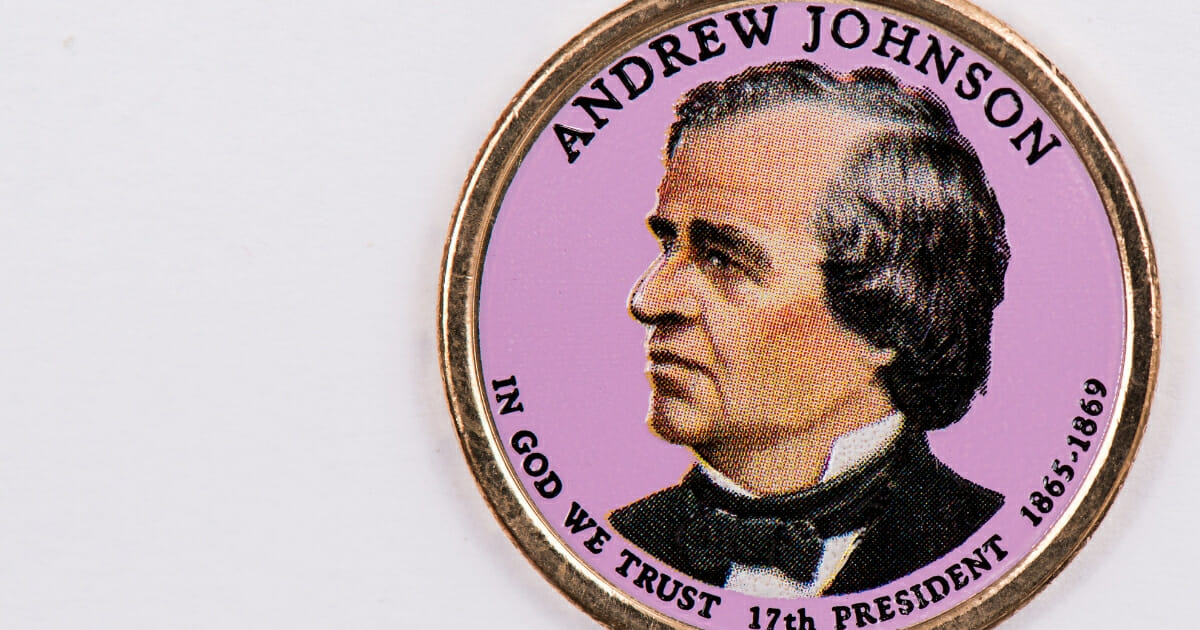
151 Years Ago Today Andrew Johnson Became the First President To Be Impeached
Democratic President Andrew Johnson was impeached by the U.S. House of Representatives on Feb. 24, 1868 – 151 years ago.
Johnson was the first president to be impeached, but the story begins a long time before House members voted 126-47 in favor of an impeachment resolution.
Johnson, a U.S. Senator for Tennessee, was the sole senator to support the North despite coming from a seceding state at the start of the Civil War in 1861, according to History. The Civil War was a fight between Northern (Union) and Southern (Confederate) states over slavery among other issues.
Southern states began seceding from the Union when Republican President Abraham Lincoln was elected in 1860. Lincoln rewarded Johnson for his loyalty by making him the military governor of Tennessee in 1862. Johnson was later elected as vice president under Lincoln’s tenure in 1864.
The Civil War ended after the Confederacy surrendered in 1865, the same year Lincoln was assassinated.
Johnson took over as president and the response was initially optimistic, according to the U.S. Senate. Congress became upset, however, after discovering Johnson’s views on rebuilding the South.
Johnson’s Reconstruction plan included forgiving ex-Confederates and giving local Southern governments power to enforce “Black codes” to control the behavior of former slaves and African Americans.
Radical Republicans in Congress wanted stricter rules for Confederate states to regain entry into the Union and wanted freed African Americans to be included into society, however. Congress and Johnson did not want to compromise and clashed as a result.
One of the clashes included Congress passing the Tenure of Office Act in March 1867 despite a veto from Johnson. The act prohibited a president from firing any official without consent from the Senate, which Johnson believed was unconstitutional. The act would later be deemed unlawful by the U.S. Supreme Court in 1926, according to Britannica.
Many Congress members endorsed the idea of impeachment in mid-1867, according to the U.S. Senate.
But the final blow was when Johnson fired Republican Secretary of War Edwin Stanton, an ally for many Congressmen, the Smithsonian Magazine reported.
Firing Stanton was not just one of political disagreements, but also to test the constitutionality of the Act, according to National Park Service.
The Senate tried the case between March and May 1868 where two-thirds would need to vote guilty in order for Johnson to get convicted. Johnson, instead, was acquitted after 35 voted guilty and 19 not guilty, one Senate vote short of conviction.
Kansas Republican Senator Edmund Ross was expected to vote guilty, but voted in favor of Johnson at the last minute. One theory suggests Ross made the controversial decision because he was enemies with Senate President and Republican Benjamin Wade, who would become president if Johnson was impeached. Another theory suggests Ross may have been after a $150,000 fund set up by Johnson supporters, the National Constitution Center reported.
Iowa Republican Senator James Grimes was one of the 19 to vote not guilty, according to the U.S. Senate.
“I cannot agree to destroy the harmonious working of the Constitution for the sake of getting rid of an Unacceptable President,” Grimes said.
Content created by The Daily Caller News Foundation is available without charge to any eligible news publisher that can provide a large audience. For licensing opportunities of our original content, please contact licensing@dailycallernewsfoundation.org.
A version of this article appeared on The Daily Caller News Foundation website.
Truth and Accuracy
We are committed to truth and accuracy in all of our journalism. Read our editorial standards.
Advertise with The Western Journal and reach millions of highly engaged readers, while supporting our work. Advertise Today.












